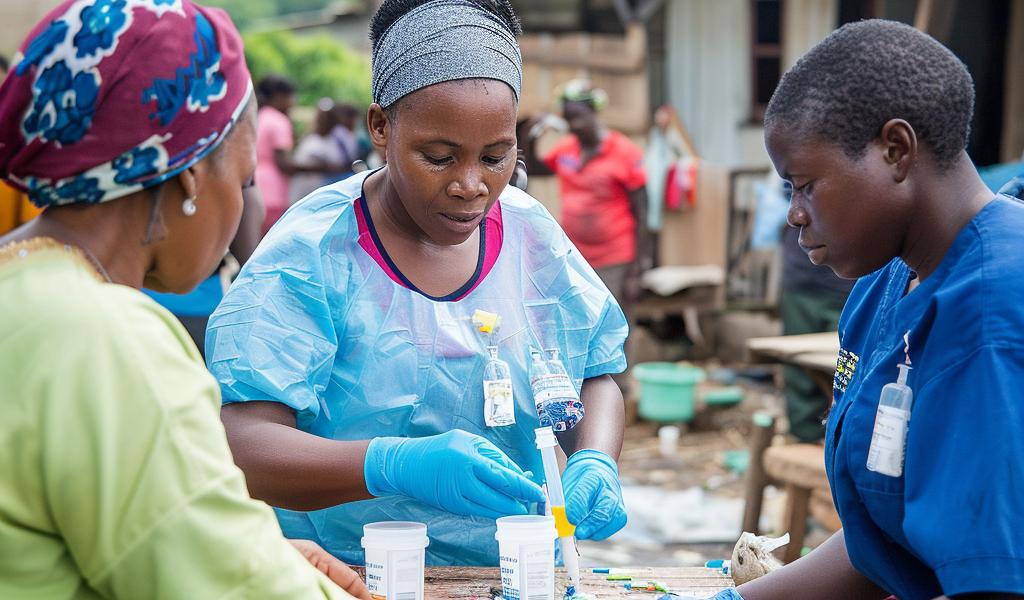Global Deployment of Rapid Diagnostic Tests to Boost Fight Against Cholera
April 5, 2024
More than 1.2 million cholera rapid diagnostic tests are set to be distributed to 14 countries in the largest-ever global deployment, marking a significant step in the fight against cholera. The first shipment of these tests has arrived in Malawi, officially launching the deployment through Gavi, the Vaccine Alliance. This initiative aims to enhance the timely detection and monitoring of outbreaks, improve the effectiveness of vaccination campaigns, and target future preventive vaccination efforts.
The global cholera rapid diagnostic test procurement program is a collaborative effort involving Gavi, WHO, UNICEF, FIND, and other partners. The distribution of rapid diagnostic test (RDT) kits for cholera in Malawi is the initial phase of a global program that will see over 1.2 million tests delivered to 14 high-risk countries for cholera in the coming months. Among the countries set to receive the kits are those currently experiencing severe cholera outbreaks, including Ethiopia, Somalia, Syria, and Zambia.
This program is expected to significantly enhance the timeliness and accuracy of outbreak detection and response by bolstering routine surveillance and testing capacity, facilitating the rapid identification of probable cholera cases. Furthermore, it will aid countries in monitoring trends and establishing an evidence base for future preventive programs, thereby supporting national cholera control and elimination targets.
The global cholera diagnostics program, funded and coordinated by Gavi, the Vaccine Alliance, with procurement and delivery led by UNICEF, is being carried out in collaboration with the Global Task Force on Cholera Control (GTFCC) and WHO. It was developed in partnership with FIND, which played a key role in defining the required characteristics of cholera RDTs through the development of a target product profile, in addition to other organizations.
The commencement of the initial shipments marks the beginning of the program, which aims to extend the deployment of RDTs to other countries that have expressed interest in the future. The long-term sustainability of the program hinges on successful fundraising for Gavi’s next strategic period, spanning from 2026 to 2030.
As part of this endeavor, rapid diagnostic tests from two manufacturers, previously supplied via WHO and UNICEF for outbreak response, will now be utilized routinely for cholera surveillance. Pilot studies conducted in the Democratic Republic of the Congo (DRC), Niger, and Nepal, funded by Gavi and led by the United States Centers for Disease Control and Prevention (CDC), Johns Hopkins University (JHU), and Epicentre/ Médecins Sans Frontières, have contributed to an improved understanding of effective rapid testing strategies.





